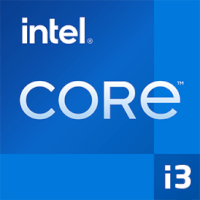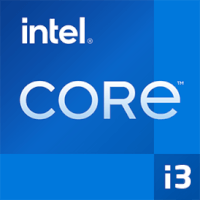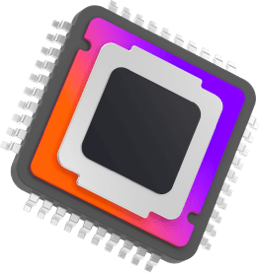| Intel Core i3-3225 | Intel Core i3-7100U | |
| 55 W | Max TDP | 15 W |
| NA | Consumo de energía por día (kWh) | NA |
| NA | Coste corriente por día | NA |
| NA | Consumo de energía por año (kWh) | NA |
| NA | Costo de funcionamiento por año | NA |
Intel Core i3-3225 vs Intel Core i3-7100U

El Intel Core i3-3225 opera con 2 núcleos y 4 subprocesos de CPU. Se ejecuta en No turbo base No turbo todos los núcleos mientras que el TDP se establece en 55 W .El procesador está conectado al LGA 1155 CPU LGA 1155. Esta versión incluye 3.00 MB de caché L3 en un chip, admite canales de 2 DDR3-1600 y cuenta con PCIe Gen . Tjunction mantiene por debajo de -- grados C. En particular, Ivy Bridge S arquitectura se mejora con la 22 nm y es compatible con la VT-x, VT-x EPT, VT-d . El producto se lanzó el Q3/2012

El Intel Core i3-7100U opera con 2 núcleos y 4 subprocesos de CPU. Se ejecuta en -- base -- todos los núcleos mientras que el TDP se establece en 15 W .El procesador está conectado al BGA 1356 CPU BGA 1356. Esta versión incluye 3.00 MB de caché L3 en un chip, admite canales de 2 DDR4-2133 SO-DIMM y cuenta con 3.0 PCIe Gen 12 . Tjunction mantiene por debajo de 100 °C grados C. En particular, Kaby Lake U arquitectura se mejora con la 14 nm y es compatible con la VT-x, VT-x EPT, VT-d . El producto se lanzó el Q4/2016
Intel Core i3-3225
Intel Core i3-7100U
Comparar detalle
| 3.30 GHz | Frecuencia | 2.40 GHz |
| 2 | Núcleos | 2 |
| No turbo | Turbo (1 núcleo) | -- |
| No turbo | Turbo (todos los núcleos) | -- |
| Hyperthreading | Yes |
|
| Overclocking | No |
|
| normal | Arquitectura del núcleo | normal |
| Intel HD Graphics 4000 | GPU | Intel HD Graphics 620 |
| 1.05 GHz | GPU (Turbo) | 1.00 GHz |
| 22 nm | Tecnología | 14 nm |
| 1.05 GHz | GPU (Turbo) | 1.00 GHz |
| 11.0 | Versión de DirectX | 12 |
| 3 | Max. muestra | 3 |
| DDR3-1600 | Memoria | DDR4-2133 SO-DIMM |
| 2 | Canales de memoria | 2 |
| Memoria máxima | ||
| ECC | No |
|
| -- | L2 Cache | -- |
| 3.00 MB | L3 Cache | 3.00 MB |
| Versión PCIe | 3.0 | |
| PCIe lanes | 12 | |
| 22 nm | Tecnología | 14 nm |
| LGA 1155 | Enchufe | BGA 1356 |
| 55 W | TDP | 15 W |
| VT-x, VT-x EPT, VT-d | Virtualización | VT-x, VT-x EPT, VT-d |
| Q3/2012 | Fecha de lanzamiento | Q4/2016 |
Cinebench R20 (Single-Core)
Cinebench R20 es el sucesor de Cinebench R15 y también se basa en Cinema 4 Suite. Cinema 4 es un software utilizado en todo el mundo para crear formas 3D. La prueba de un solo núcleo solo usa un núcleo de CPU, la cantidad de núcleos o la capacidad de hyperthreading no cuentan.
Cinebench R20 (Multi-Core)
Cinebench R20 es el sucesor de Cinebench R15 y también se basa en Cinema 4 Suite. Cinema 4 es un software utilizado en todo el mundo para crear formas 3D. La prueba de múltiples núcleos involucra todos los núcleos de CPU y tiene una gran ventaja de hyperthreading.
Cinebench R15 (Single-Core)
Cinebench R15 es el sucesor de Cinebench 11.5 y también se basa en Cinema 4 Suite. Cinema 4 es un software utilizado en todo el mundo para crear formas 3D. La prueba de un solo núcleo solo usa un núcleo de CPU, la cantidad de núcleos o la capacidad de hyperthreading no cuentan.
Cinebench R15 (Multi-Core)
Cinebench R15 es el sucesor de Cinebench 11.5 y también se basa en Cinema 4 Suite. Cinema 4 es un software utilizado en todo el mundo para crear formas 3D. La prueba de múltiples núcleos involucra todos los núcleos de CPU y tiene una gran ventaja de hyperthreading.
Geekbench 5, 64bit (Single-Core)
Geekbench 5 es un banco de pruebas de plataformas cruzadas que utiliza en gran medida la memoria del sistema. Una memoria rápida empujará mucho el resultado. La prueba de un solo núcleo solo usa un núcleo de CPU, la cantidad de núcleos o la capacidad de hyperthreading no cuentan.
Geekbench 5, 64bit (Multi-Core)
Geekbench 5 es un banco de pruebas de plataformas cruzadas que utiliza en gran medida la memoria del sistema. Una memoria rápida empujará mucho el resultado. La prueba de múltiples núcleos involucra todos los núcleos de CPU y tiene una gran ventaja de hyperthreading.
iGPU - FP32 Performance (Single-precision GFLOPS)
El rendimiento informático teórico de la unidad gráfica interna del procesador con precisión simple (32 bits) en GFLOPS. GFLOPS indica cuántos miles de millones de operaciones de punto flotante puede realizar la iGPU por segundo.
Geekbench 3, 64bit (Single-Core)
Geekbench 3 es un banco de pruebas de plataformas cruzadas que utiliza en gran medida la memoria del sistema. Una memoria rápida empujará mucho el resultado. La prueba de un solo núcleo solo usa un núcleo de CPU, la cantidad de núcleos o la capacidad de hyperthreading no cuentan.
Geekbench 3, 64bit (Multi-Core)
Geekbench 3 es un banco de pruebas de plataformas cruzadas que utiliza en gran medida la memoria del sistema. Una memoria rápida empujará mucho el resultado. La prueba de múltiples núcleos involucra todos los núcleos de CPU y tiene una gran ventaja de hyperthreading.
Cinebench R11.5, 64bit (Single-Core)
Cinebench 11.5 se basa en Cinema 4D Suite, un software que es popular para generar formularios y otras cosas en 3D. La prueba de un solo núcleo solo usa un núcleo de CPU, la cantidad de núcleos o la capacidad de hyperthreading no cuentan.
Cinebench R11.5, 64bit (Multi-Core)
Cinebench 11.5 se basa en Cinema 4D Suite, un software que es popular para generar formularios y otras cosas en 3D. La prueba de múltiples núcleos involucra todos los núcleos de CPU y tiene una gran ventaja de hyperthreading.
Cinebench R11.5, 64bit (iGPU, OpenGL)
Cinebench 11.5 se basa en Cinema 4D Suite, un software que es popular para generar formularios y otras cosas en 3D. La prueba de iGPU utiliza la unidad gráfica interna de la CPU para ejecutar comandos OpenGL.
Estimated results for PassMark CPU Mark
Algunas de las CPU que se enumeran a continuación se han evaluado mediante CPU-Comparison. Sin embargo, la mayoría de las CPU no se han probado y los resultados se han estimado mediante la fórmula secreta patentada de una comparación de CPU. Como tales, no reflejan con precisión los valores reales de marca de la CPU de Passmark y no están respaldados por PassMark Software Pty Ltd.

Estimación de uso eléctrico


